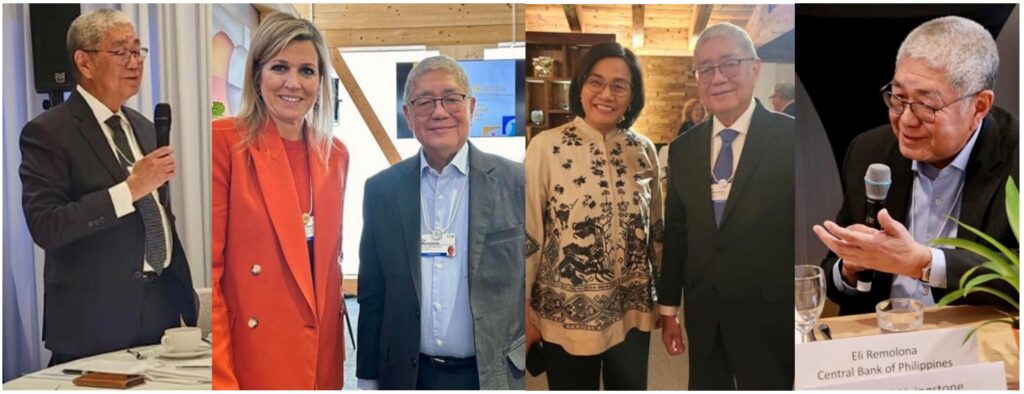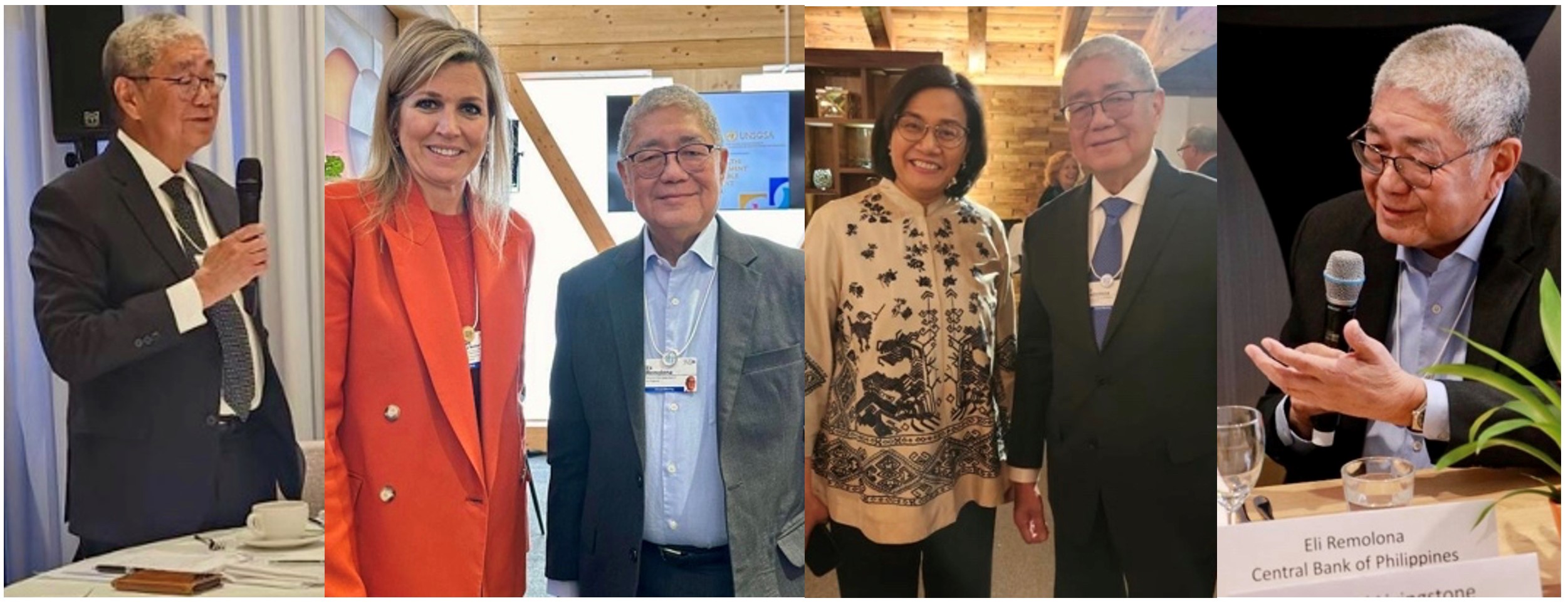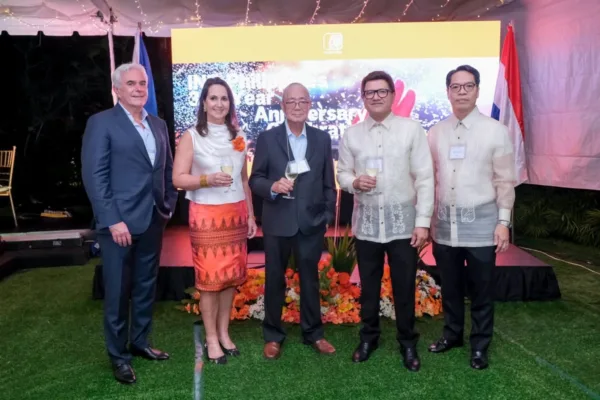Bangko Sentral ng Pilipinas (BSP) Governor Eli M. Remolona, Jr. recently participated in key sessions at the World Economic Forum (WEF) held earlier this year from January 15 to 19 in Davos, Switzerland.
The WEF provides a global, impartial and not-for-profit platform for meaningful connection between stakeholders to establish trust and build initiatives for cooperation and progress.
To do this, the forum engages the foremost political, business, and other leaders of the society to shape global, regional and industry agendas.

Photos (from left) show BSP Governor Eli M. Remolona, Jr. at the World Economic Forum sessions on “Technology and Innovation in Financial Services: Balancing Promises and Risks;” At the “Financial Health: Key to Empowerment and Sustainable Development” forum together with Queen Máxima of the Netherlands, the United Nations Secretary-General’s Special Advocate for Inclusive Finance for Development; and “Building ASEAN’s Regional Integration through the Digital Economy” with Indonesian Finance Minister Sri Mulyani; and at “Insights over Lunch: Forecasting the Economy in 2024.”
During the event, the BSP governor provided the keynote in the session on “Technology and Innovation in Financial Services: Balancing Promises and Risks,” where discussions covered opportunities in using emerging technologies, such as artificial intelligence (AI), and the risks that have to be managed.
He also took part in the session on “Building ASEAN’s Regional Integration through the Digital Economy,” which discussed digitalization that could triple the region’s digital economy to USD 1 trillion by 2030.
Financial inclusion was also part of the WEF agenda.
The BSP chief participated in high-level talks on “Financial Health: Key to Empowerment and Sustainable Development” hosted by United Nations Secretary-General’s Special Advocate for Inclusive Finance for Development Queen Máxima of the Netherlands.
The session focused on elevating financial health in the global development agenda. Policymakers and service providers are encouraged to ensure that financial services continue to help customers manage their daily finances, build resilience, and invest in their future.
Held annually, the WEF is the International Organization for Public-Private Cooperation. It engages the foremost political, business, cultural and other leaders of society to shape global, regional and industry agendas.
Headquartered in Geneva, Switzerland, the WEF was established in 1971 as a not-for-profit foundation. Today, it remains an independent and impartial organization that is not tied to any special interests.
The forum strives in all its efforts to demonstrate entrepreneurship in the global public interest while upholding the highest standards-of-governance.
According to its website, moral and intellectual integrity is at the heart of everything it does.
The WEF’s activities are shaped by a unique institutional culture founded on the stakeholder theory, which asserts that an organization is accountable to all parts of society. The institution carefully blends and balances the best of many kinds of organizations, from the public and the private sectors as well as with international organizations and academic institutions.
It believes that progress happens by bringing together people from all walks of life who have the drive and the influence to make positive change.








